Ravindra Joshi: 100 years of the Pune Press Owners Association - The Noel D'Cunha Sunday Column
The new vice president for West, All India Federation of Master Printers has been an active member of the Poona Press Owners Association (PPOA) building an audacious consumable bulk buying module, which is helping the members buy materials at discounted cost. And he wants to do more.
“The association has devised a vision which will bring some much-needed facilities to the region in the PPOA’s centenary year,” says Joshi.
Besides the two association roles, Joshi heads a print fi
06 Oct 2017 | By Noel D'Cunha
Right now you have four roles: head of your print firm, head of a cafe, head + mentor at PPOA and your most recent appointment as VP at AIFMP. Which do you enjoy the most?
I guess I enjoy all the four roles. I am grateful of “print” because of which I have received all the honour of working in various capacities in different associations.
How did your print journey begin?
I remember I started playing with paper and ink since I was in class four. That’s when my parents ran a print business, Shree Cyclostyling.
How old were you, when you joined your father?
Around 10, or maybe 12 years old.
Was print, trade or commercial, in those days?
It was commercial print.
Were the margins good in those days?
The margins were pretty good.
You focused on a very specific product set?
Yes, we focused on office stationery and anything printed on paper.
How did you get interested in the café business?
I started the Hotel Keg & Barrel only because of the solid foundation my father gave me through Shree J Printers. The motto of this printing press was – quality and timely delivery, from the time it was set up.
You joined from a commercial print background. As you mentioned in your speech at PVG you learned a lot from trade shops and binders around your unit. You mentioned how you would visit all sorts of companies and pick up all sorts of tactics, not just about printing, but finding out how they ordered, how much they paid per thousand, how often they ordered them and where they stored them. Then you went back to the office to work out a new value proposition. Have things changed since those days of innocence?
Yes, I was crazy and passionate to print everything that would be printed in Pune. Since we had basic letterpress technology, I used to get the things outsourced from many printing units, binders, screen printers in Pune and Mumbai.
You learnt every trick of the trade at your press?
Yes, each and every process like composing, printing on a treadle machine, binding etc at our press. I used to work in any department as an apprentice for long hours, of course without stipend.
You mastered binding. Tell me about that.
I am proud to say that I am a really good binder who can deliver from collating, pinning, sewing, hand numbering, hard-case binding even leather binding. I was fortunate to deal with many dealers of the raw material with different stores and owners. They supported me and gave very useful information.
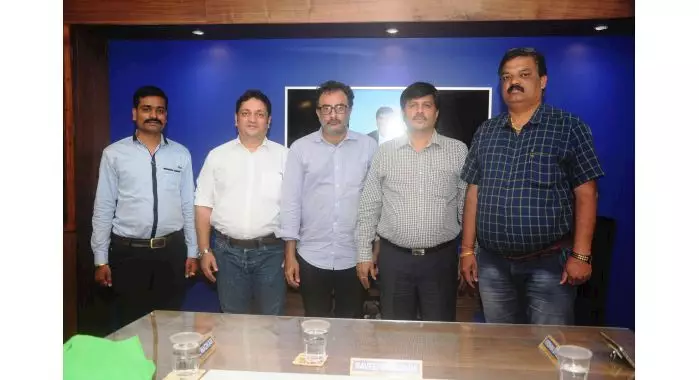
You also experimented with the present PPOA-Toyo Ink module?
Yes, it is based on inputs I got in those days – bulk buying at discounted rates from vendors. I implemented this mode of buying our ink stock after I became the secretary of PPOA, as a result I could pass on the discounts to my fellow printers.
How does it impact the cash flow for a printer? How does PPOA make it profitable from a P&L point of view, the cost of the stocking, the cost of the investment, the cost of the handling the material?
When a printer is part of the PPOA-Toyo Ink module, he gets a 27% discount on the purchase. We also do something similar with the binding material. However, in both cases, we have not eliminated the dealers from this process. They help us maintain the stock and logistics part of it. The savings come from here.
Do you plan to extend the bulk buying module?
Your question is bang on, Noel. We have bigger plans and don’t be surprised if we start a printing materials mall in the near future where one can buy anything from the pin to printing equipment.
Some say Ravi Joshi is a better salesperson than a print person. Your view?
That’s a tight-rope question. It’s difficult for me to tell if I am a good salesperson or a good print person. But one thing is clear. I am passionate about print, but I also have to run a print business. When I started off I had no choice but to borrow money from friends and banks. So I had to get business to take care of the business and repayments. I never intended to do selling and production as an individual task, but circumstances proved that it was a good blend.
I see.
To sum up, you need to be a good print person to become a good salesperson.
All is well at PPOA with the new office? It looks chic and spacious.
Yes, I am proud that my team of directors have done a wonderful job of creating a beautiful conference room and office, well before we start the 100-year celebrations of our association. I am sure this conference hall will host many seminars, events related to the print industry plus boost print education.
You have big plans for 2018-19 like a conference, strengthening the library and a badminton competition…
The Poona Press Owners Association was formed in 1919. The Association was also instrumental in laying the foundation stone of the AIFMP and the Maharashtra Mudran Parishad.
What are the plans?
We will be hosting our association’s centenary event in 2019. During the course of 2018, we will hold several events, pay tribute to all our forefathers who were visionary and construct two huge buildings for the association in Pune. The objective of the new initiative will be to start print trade education.
We plan to host international conferences on the latest in print technology; a competition for students and faculty; and an all-India printers badminton tournament; on the 19th of each month starting May 2018, we will hold events related to print in Pune; a history book of the Pune print industry and PPOA; and finally, a museum of printing equipment.
Please explain the sarvajanik form of print management at PPOA? How does it work?
PPOA is also contributing on the social front. We organise health camps, blood donation camps for our workers. We organise various educational seminars for printers. We publish the monthly magazine, Mudran Prakash. We have created an emergency corpus fund and we can help in case of mishaps in a printing press, or in times of natural calamities. During our annual day celebration, we felicitate women who have contributed to this industry. We also felicitate children of our printers and their workers who passed SSC and HSC examinations. We give scholarships for the meritorious student in print education. These are the sarvajanik forms that PPOA takes from time to time.
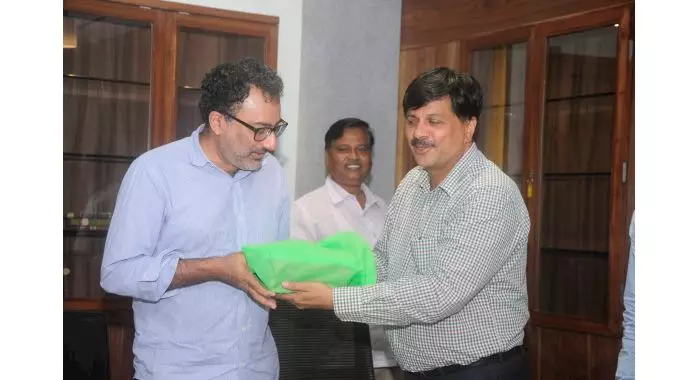
How can other print associations around India gain from your experience?
PPOA may be completing hundred years but we humbly learn from every association about their brilliant contribution towards this industry. We always believe that learning is an unending process. We are ready to co-operate with any association in India or overseas.
On the production side of things, what is the update from your printing plant?
We are planning to automate our print finishing capabilities, even though it’s a bit expensive.
A lot of printers are talking about mathematically creating a nifty business model whereby you can run a nice lean, mean printing business. What is your view?
Yes, I fully agree with them and it should be like that. The focus should be on saving production cost and being competitive.
The best thing about running your own business is that you deal with everything, finance, HR, marketing, production – everything. And you’re always learning and get a great rounded overview of running a business. Is this good or bad?
Printing is a business where you have to multitask. You must adapt every print process personally and for first three years you must understand the limitation of that particular process and learn to delegate the work as per the expertise of your subordinate. With this, you will become a good printing press owner. At the same time, you must be a good administrator too as well as possess good sales techniques.
What were the key lessons you take from your decades of experience as a print CEO in Pune?
Today you may call me a successful owner of a small print house. I agree to this extent but there are extraordinary successful players too. As a law graduate, I could run the business but honestly, I never understood dot gain, dot loss. At the most, I can say I understood dot. I could pass off in those days, but today printing has become a science and students must learn the art of perfectly blending all the engineering branches.
You are VP at AIFMP now. What is your plan to integrate with the stellar work people like Kamal Chopra and Anand Limaye have performed in the past few months?
Being a vice president for West at AIFMP, I have to walk on the path laid down by my predecessors. I will connect with my printer friends in the West zone and make them understand that they should be proud to be the part of this second largest industry in the world.
The last time, we met, you said print has become commoditised – what can our industry do to avoid that? The recent experience of our industry representatives when they interacted with the government bodies has been most discouraging...
We have to try, try, and try. Things will not change unless we printers make collective efforts to brand ourselves as the world’s largest industry, an industry which touches every human, every day, from the time he wakes up to the time he goes to sleep.
What according to you is the shape of print to come in 2050?
According to me by 2050, there will be the drastic change in the nature of the print houses, means a print house will have to keep all technologies in one basket for his survival.
You head a fine dine cafe near Fergusson College. Do you have any hobbies like collecting stamps, or travelling, fast cars?
My brother, Shekhar Joshi, and I are lucky enough that we could fulfil the dream of our father. He wanted to set up a restaurant. I like to travel. I don’t collect postal stamps but I definitely collect friends, and I am proud to say I have a solid friends’ bank.



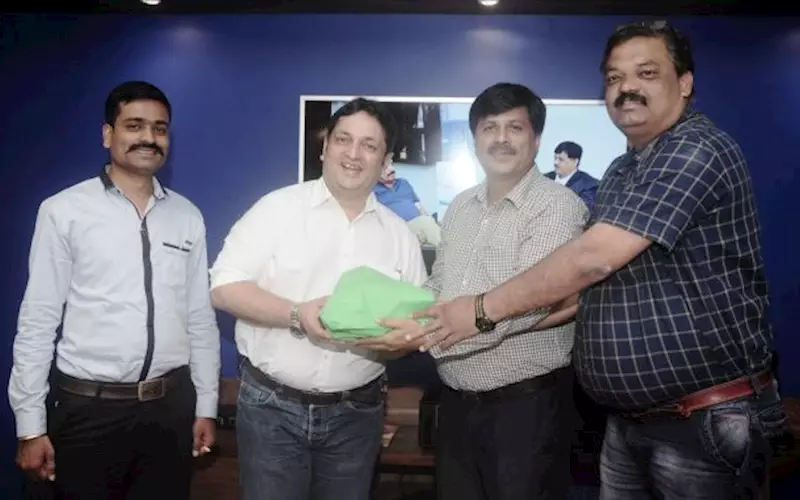
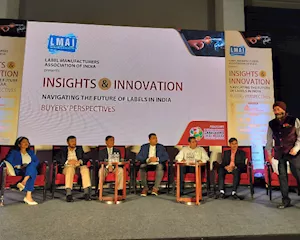
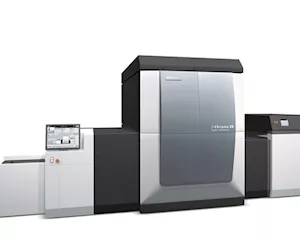
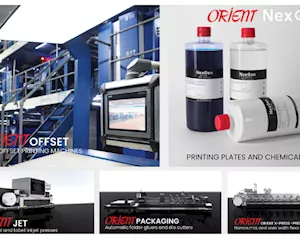
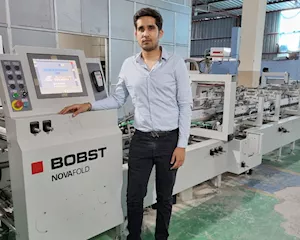
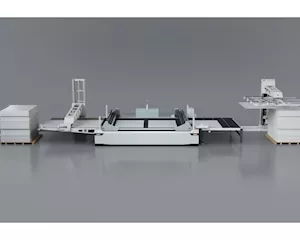






 See All
See All